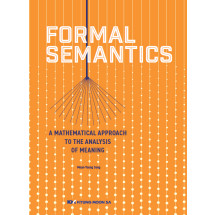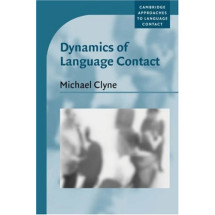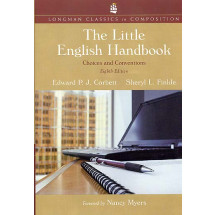1 The Benefit of Asking the Right Questions
Introduction
Critical Thinking to the Rescue
The Sponge and Panning for Gold: Alternative Thinking Styles
An Example of the Panning-for-Gold Approach
Panning for Gold: Asking Critical Questions
The Myth of the “Right Answer”
Thinking and Feeling
The Purpose of Asking the Question, “Who Cares?”
Weak-Sense and Strong-Sense Critical Thinking
The Satisfaction of Using the Panning-for-Gold Approach
Trying Out New Answers
Effective Communication and Critical Thinking
The Importance of Practice
The Right Questions
2 What Are the Issue and the Conclusion?
Kinds of Issues
Searching for the Issue
Searching for the Author’s or Speaker’s Conclusion
Clues to Discovery: How to Find the Conclusion
Critical Thinking and Your Own Writing and Speaking
Practice Exercises
3 What Are the Reasons?
Reasons + Conclusion = Argument
Initiating the Questioning Process
Words That Identify Reasons
Kinds of Reasons
Keeping the Reasons and Conclusions Straight
Reasons First, Then Conclusions
“Fresh” Reasons and Your Growth
Critical Thinking and Your Own Writing and Speaking
Practice Exercises
4 What Words or Phrases Are Ambiguous?
The Confusing Flexibility of Words
Locating Key Terms and Phrases
Checking for Ambiguity
Determining Ambiguity
Context and Ambiguity
Ambiguity, Definitions, and the Dictionary
Ambiguity and Loaded Language
Limits of Your Responsibility to Clarify Ambiguity
Ambiguity and Your Own Writing and Speaking
Summary
Practice Exercises
5 What Are the Value Conflicts and Assumptions?
General Guide for Identifying Assumptions
Value Conflicts and Assumptions
Discovering Values
From Values to Value Assumptions
Typical Value Conflicts
The Communicator’s Background as a Clue to Value Assumptions
Consequences as Clues to Value Assumptions
More Hints for Finding Value Assumptions
Avoiding a Typical Difficulty When Identifying Value Assumptions
Finding Value Assumptions on Your Own
Values and Relativism
Summary
Practice Exercises
6 What Are the Descriptive Assumptions?
Illustrating Descriptive Assumptions
Clues for Locating Assumptions
Applying the Clues
Avoiding Analysis of Trivial Assumptions
Assumptions and Your Own Writing and Speaking
Summary
Practice Exercises
7 Are There Any Fallacies in the Reasoning?
A Questioning Approach to Finding Reasoning Fallacies
Evaluating Assumptions as a Starting Point
Discovering Other Common Reasoning Fallacies
Looking for Diversions
Sleight of Hand: Begging the Question
Summary of Reasoning Errors
Expanding Your Knowledge of Fallacies
Fallacies and Your Own Writing and Speaking
Practice Exercises
8 How Good Is the Evidence: Intuition, Personal Experience, Testimonials, and Appeals to Authority?
The Need for Evidence
Locating Factual Claims
Sources of Evidence
Intuition as Evidence
Dangers of Appealing to Personal Experience as Evidence
Personal Testimonials as Evidence
Appeals to Authority as Evidence
Summary
Practice Exercises
9 How Good Is the Evidence: Personal Observation, Research Studies, Case Examples, and Analogies?
Personal Observation
Research Studies as Evidence
Generalizing from the Research Sample
Biased Surveys and Questionnaires
Critical Evaluation of a Research-Based Argument
Case Examples as Evidence
Analogies as Evidence
Summary
Practice Exercises
10 Are There Rival Causes?
When to Look for Rival Causes
The Pervasiveness of Rival Causes
Detecting Rival Causes
The Cause or A Cause
Rival Causes and Scientific Research
Rival Causes for Differences Between Groups
Confusing Causation with Association
Confusing “After this” with “Because of this”
Explaining Individual Events or Acts
Evaluating Rival Causes
Evidence and Your Own Writing and Speaking
Summary
Practice Exercises
11 Are the Statistics Deceptive?
Unknowable and Biased Statistics
Confusing Averages
Concluding One Thing, Proving Another
Deceiving by Omitting Information
Risk Statistics and Omitted Information
Summary
Practice Exercises
12 What Significant Information Is Omitted?
The Benefits of Detecting Omitted Information
The Certainty of Incomplete Reasoning
Questions That Identify Omitted Information
The Importance of the Negative View
Omitted Information That Remains Missing
Missing Information and Your Own Writing and Speaking
Practice Exercises
13 What Reasonable Conclusions Are Possible?
Assumptions and Multiple Conclusions
Dichotomous Thinking: Impediment to Considering Multiple Conclusions
Two Sides or Many?
Searching for Multiple Conclusions
Productivity of If-Clauses
Alternative Solutions as Conclusions
The Liberating Effect of Recognizing Alternative Conclusions
All Conclusions Are Not Created Equal
Summary
Practice Exercises
14 Practice and Review
Question Checklist for Critical Thinking
Asking the Right Questions: A Comprehensive Example
What Are the Issue and Conclusion?
What Are the Reasons?
What Words or Phrases Are Ambiguous?
What Are the Value Conflicts and Assumptions?
What Are the Descriptive Assumptions?
Are There Any Fallacies in the Reasoning?
How Good Is the Evidence?
Are There Rival Causes?
Are the Statistics Deceptive?
What Significant Information Is Omitted?
What Reasonable Conclusions Are Possible?
Final Word
The Tone of Your Critical Thinking
Strategies for Effective Critical Thinking
Index
Neil Browne lectures at bowling Green State University.












